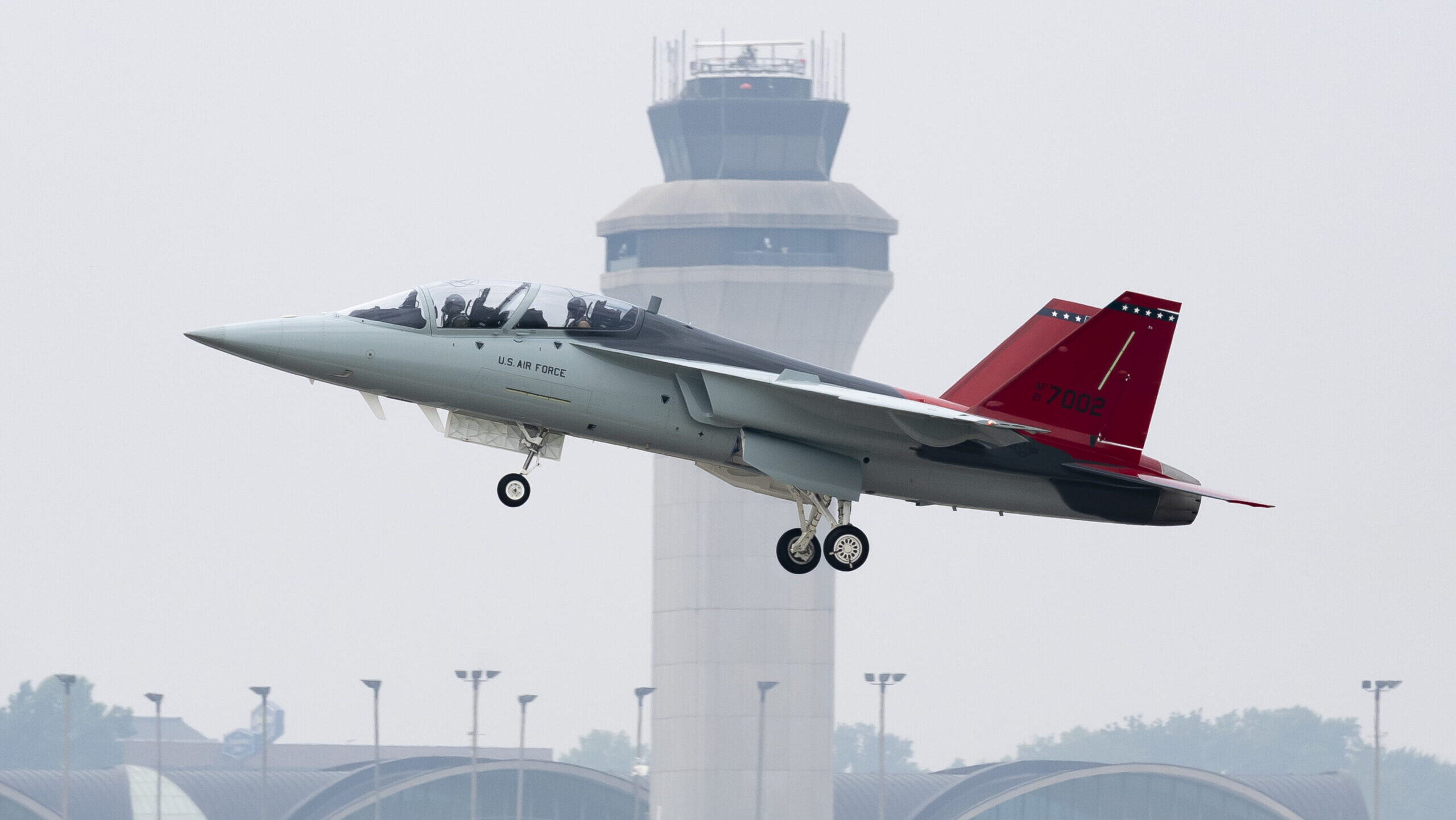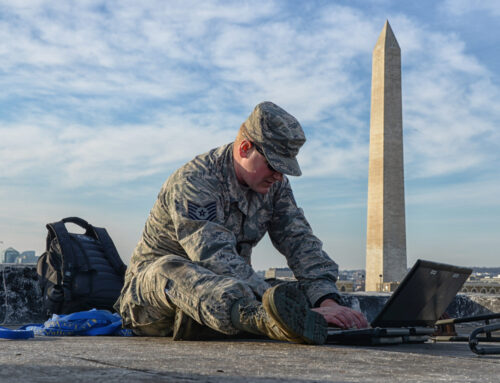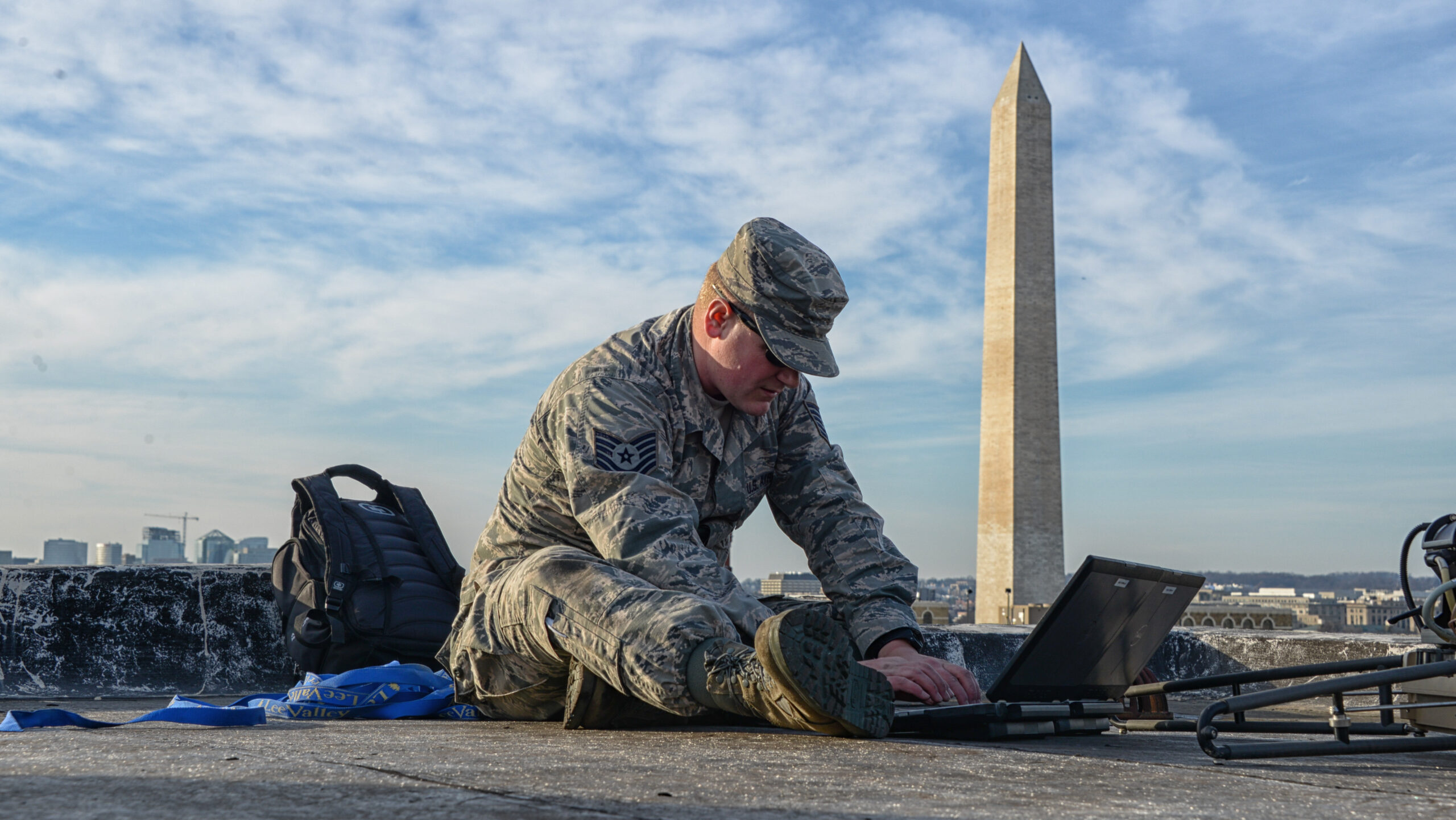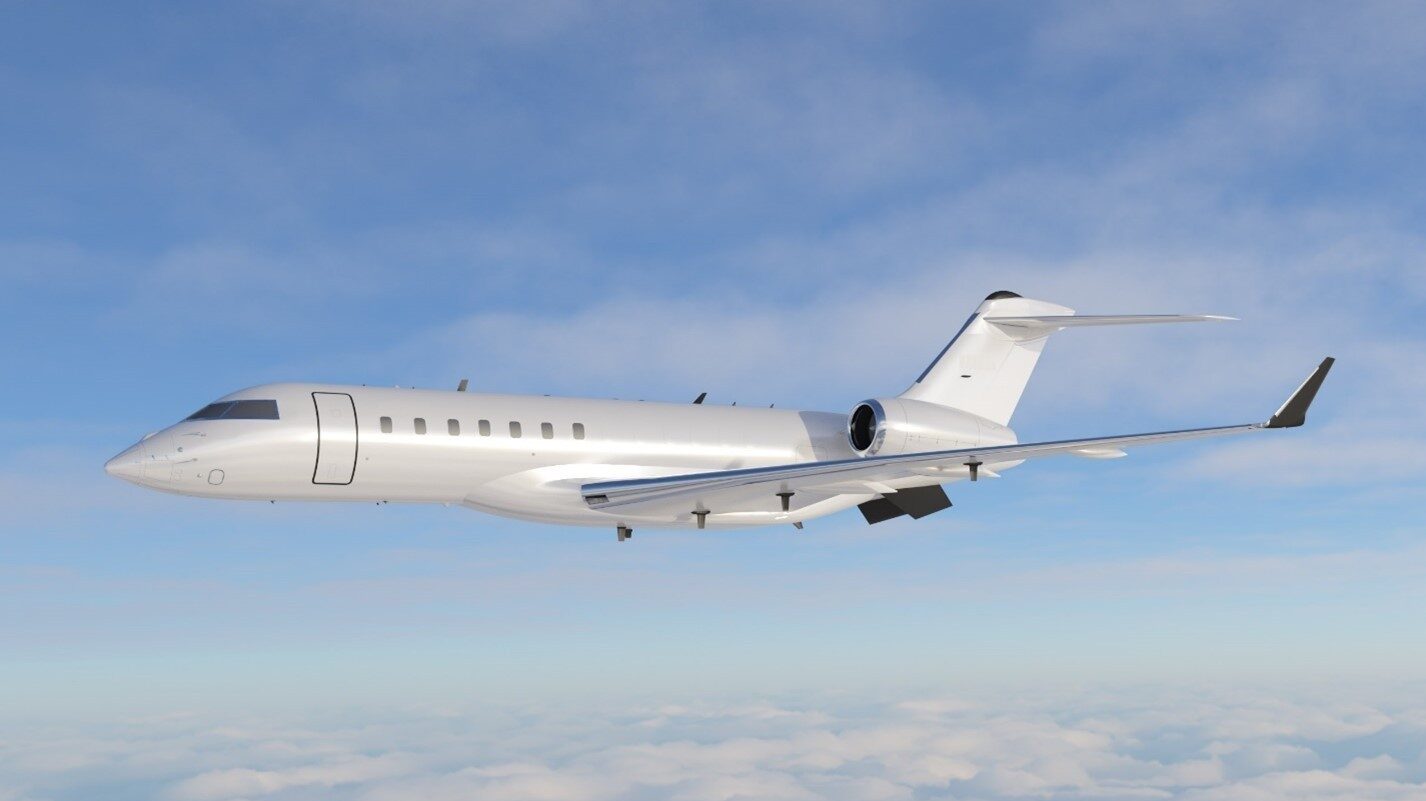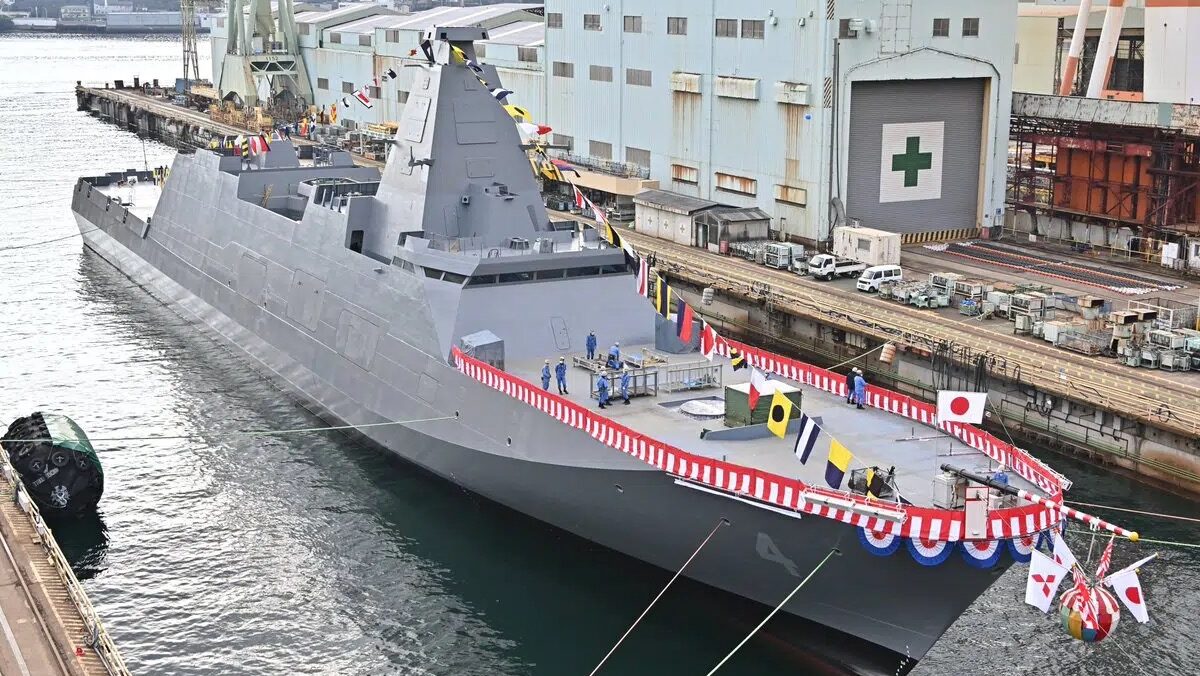A T-7A Red Hawk trainer aircraft from the 416th Flight Test Squadron, takes off from St Louis Lambert International Airport (Boeing)
WASHINGTON — Boeing’s defense business is “core” to the company, its new CEO said today, in a sign that the embattled aerospace giant will not conduct a complete sell-off of its defense segment as executives consider an overhaul of the company.
Kelly Ortberg, who took the chief executive position in August, said he is conducting an evaluation of Boeing’s portfolio with the intent of narrowing the company’s focus and improving execution.
“Clearly our core of commercial airplanes and defense systems are going to stay with the Boeing Company for the long run, but there’s probably some things on the fringe there that we can be more efficient with, or that just distract us from our main goal here,” he said in an earnings call this morning.
“I think that we’re better off being doing less and doing it better, than doing more and not doing it well,” he said, adding that the goal is for Boeing to understand what it sees as nonessential business by the end of the year.
Analysts had speculated whether Boeing would sell off some or all of its defense unit, known as Boeing Defense Space and Security (BDS), as it looks to improve its balance sheet, contend with a quality and safety crisis in its commercial airplanes unit and stave off ongoing losses on defense programs.
Last month, Boeing announced the departure of Ted Colbert, who had led the defense unit since 2022, with BDS Chief Operating Officer Steve Parker taking over in an interim role.
In mid-October, the company disclosed $2 billion in losses for the defense unit during the third quarter on fixed-price programs including the KC-46 tanker and T-7 training jet. At the same time, Ortberg announced layoffs of 17,000 employees, a move meant to “reset our workforce levels to align with our financial reality and to a more focused set of priorities,” he said in a letter to employees then.
Those sweeping changes have occurred as Boeing deals with an ongoing strike of its Seattle-area machinists union, which has impacted production of its bestselling 737 MAX jetliner as well as defense assets like the KC-46 and P-8 maritime surveillance aircraft. (The union will vote on whether to end the strike and accept a new contract with Boeing later this evening.)
Asked whether Boeing will replace Colbert with an executive from outside the company, Ortberg demurred.
“We’ll take a look at internally, do we have the right candidate? And if so, that’s the way we’ll head. If we need to supplement from the outside and bring some outside skills, then it will head that direction,” he said. “I’m certainly not averse to bringing in some additional resources to help the team, and I don’t think the teams are averse to that as well.”
Since the COVID-19 pandemic, Boeing’s defense unit has been plagued by cost overruns from fixed-price defense contracts, where the company is responsible for covering all costs above an agreed upon level. As the pandemic and inflationary pressures increased the cost of materials and wages, the planemaker has struggled to keep losses in check.
Ortberg acknowledged there is no “magic bullet” for Boeing’s fixed-price programs, which will take time to become profitable.
“Having said that, the discipline about what we can control on those contracts needs to get better,” he said, adding that Boeing’s defense unit hasn’t done enough work with its customers to keep program risks from developing into a potential cost overrun.
“That’s what I’ve got the team focused on doing a lot more: A lot more deep dives, a lot deeper look at the programs, a lot more looking around the corner [and] not just dealing with what today’s problem is going to be,” Ortberg said.
Boeing must also ensure it enters into future contracts with a clear view of a program’s risk, and its defense unit leadership needs to work more closely with its engineering and factory workforce to better understand problems as they arise, he said.
“I want to be the leader in the aerospace and defense market,” he said. “I want to be setting the standard for the products that we deliver. I want our customers doing our marketing for us.”


